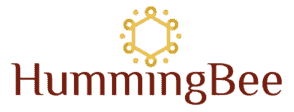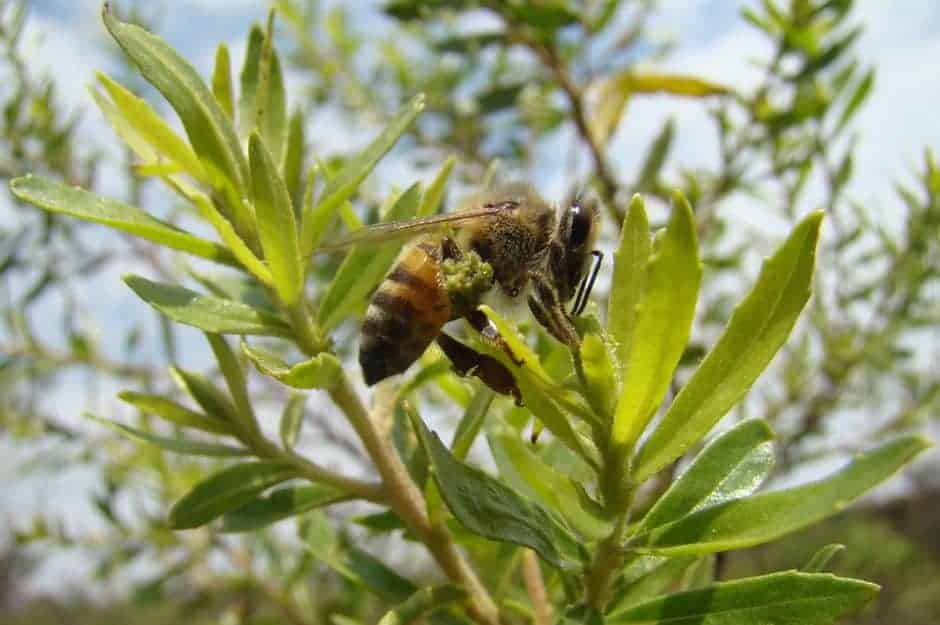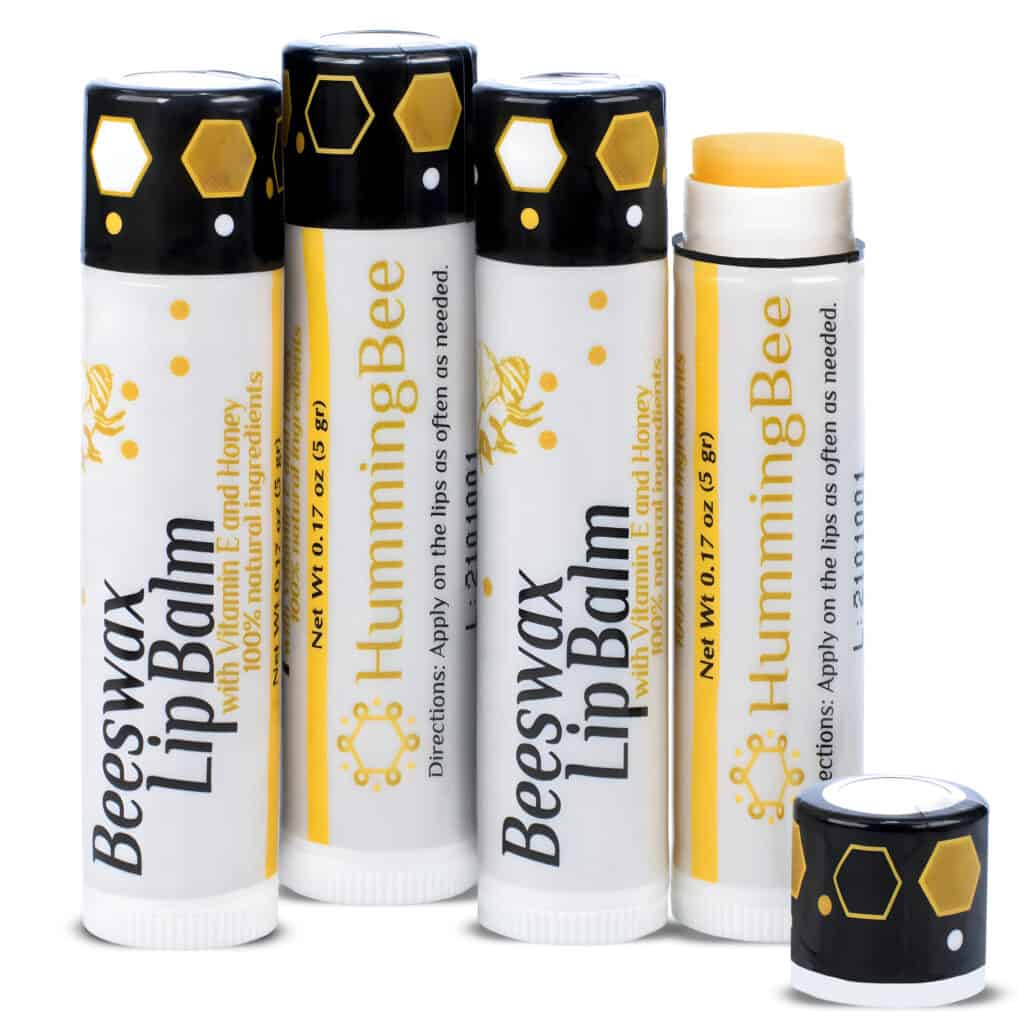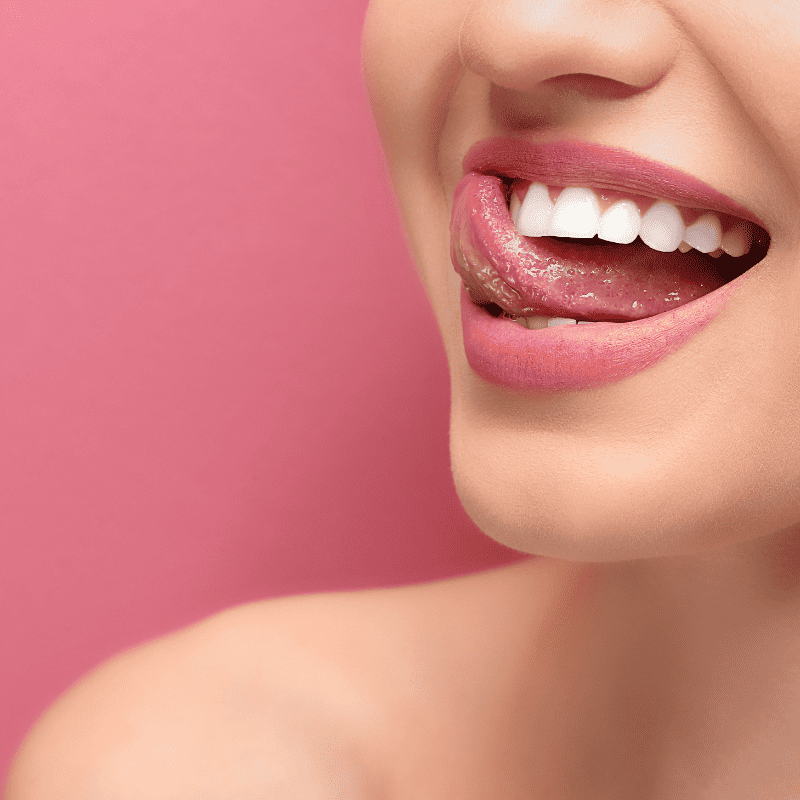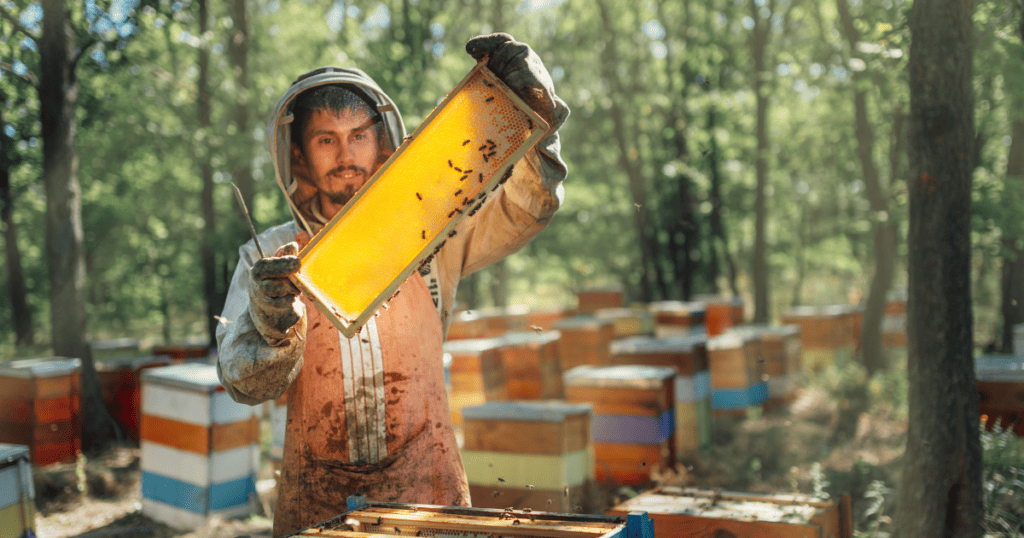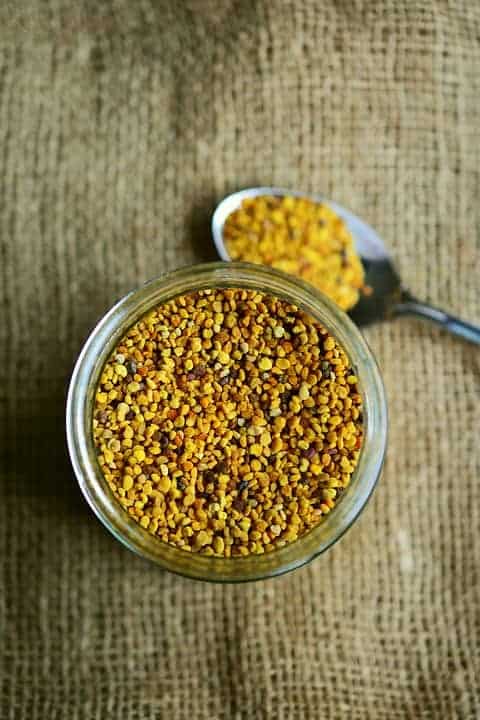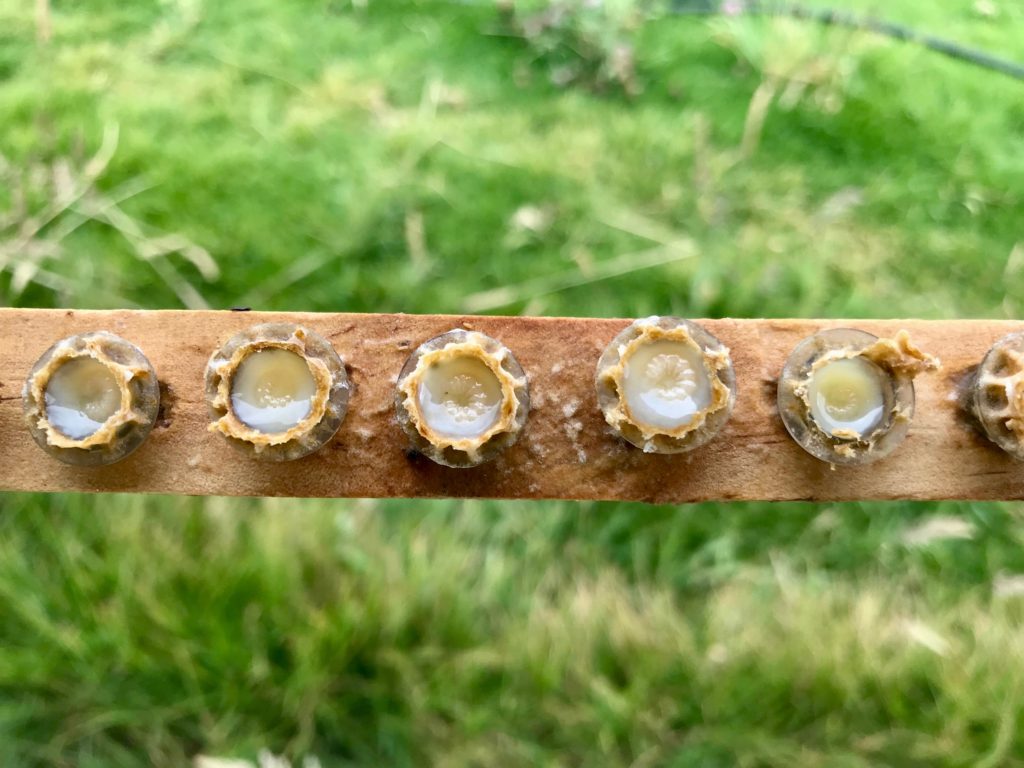If you look around the internet, you’ll find a significant amount of information about bee pollen granules; unfortunately, most of the time is not accurate and full of “facts” with no scientific validity.
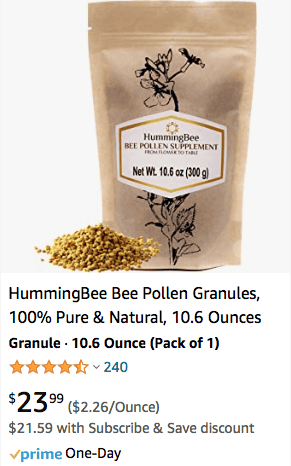
So, I´ll try to give an overview of bee pollen granules and its benefits. It is another product bees produce, such as honey, propolis, beeswax, royal jelly, and bee venom.
Visit our Amazon Store for the whole lineup of HummingBee Bee Products.
What is flower pollen?
Flower pollen is the male gametophyte of gymnosperms and angiosperms. This means plants with flowers or cones, like pines.
Its size ranges from 15 to 200 μm, and its shape, when dry, is generally oval or spherical (E. Pacini, 2015).
The latter means that single pollen particles are microscopic, as shown in the following electron microscopy picture.
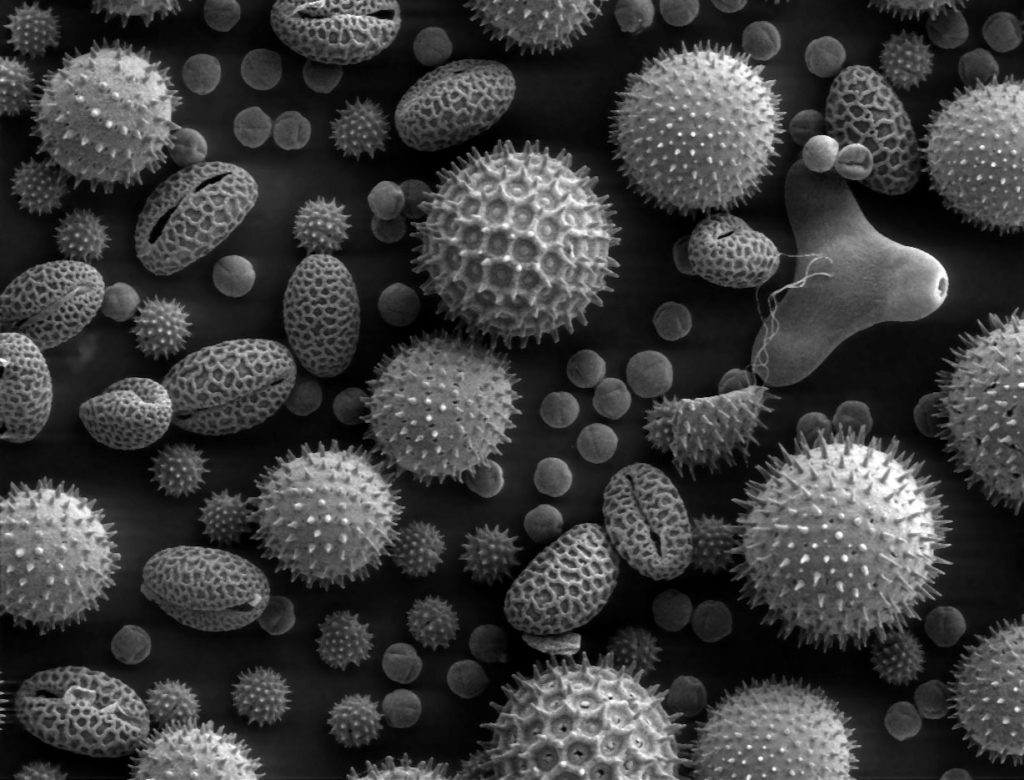
Gametophyte means that pollen particles carry the male genetic information of the plant.
So when pollination occurs, which is the process by which the wind, insects, or mammals, like bats, carry pollen from one flower to another, it meets the Stigma (female flower structure), and fertilization occurs.
When there is a lot of pollen floating around in the air, for example, pollen allergies occur in sensitive people in spring.
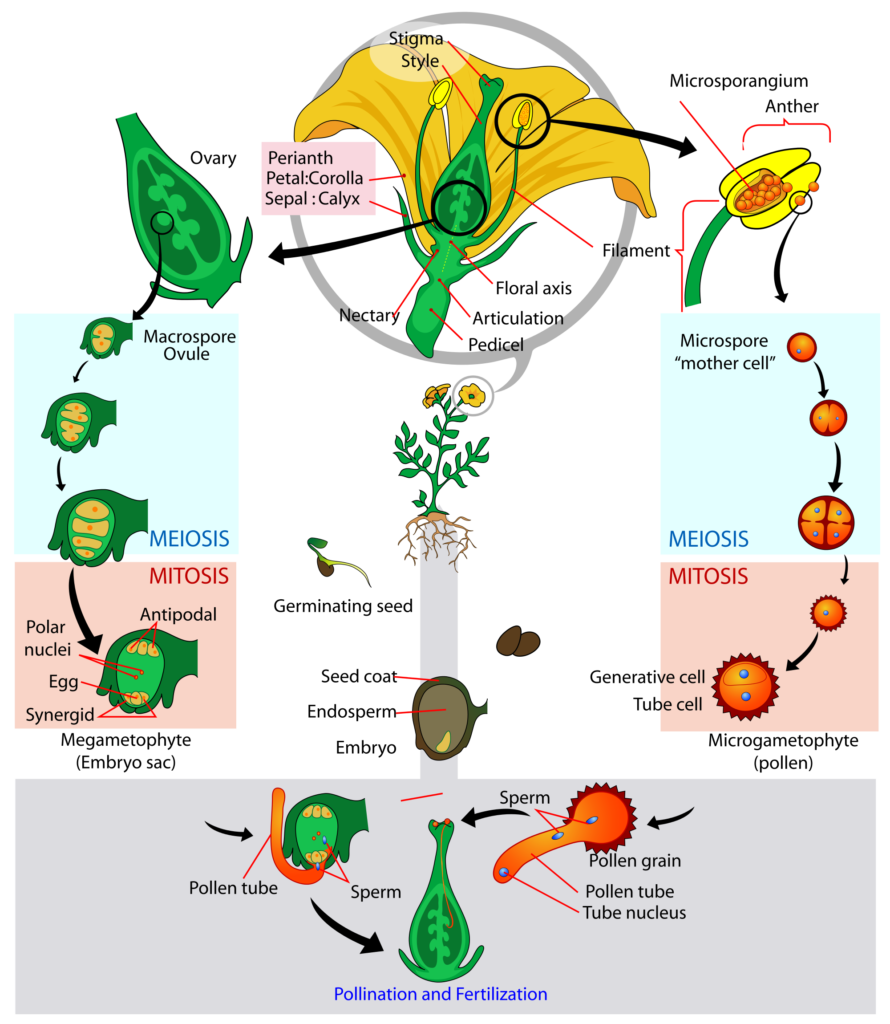
Why do worker bees collect bee pollen?
Bees do not collect pollen from pollinating the plants intentionally; that is a byproduct of the collection process and a beneficial one for plant preservation.
So honeybees collect pollen because it is packed with nutrients, especially protein, as each pollen grain is a live cell.
The only two nutrient source for adult bees is nectar for energy and pollen for protein and other nutrients. Developing bees or larvae feed on Royal Jelly, a secretion produced in the Hypopharyngeal glands of young adult bees, but we won’t get into that subject in this article.
BEES COLLECT POLLEN BECAUSE IT IS THE ONLY PROTEIN SOURCE THEY HAVE
How do bees access the nutrients in bee pollen granules?
To access the bee pollen granules nutrients, bees must somehow destroy the cell’s outer layer, which is very hard. Their stomachs are not acid enough to break that layer and release the nutrients.
So, bees evolved a way to do that with the help of microorganisms. To do this, when a bee comes with a new load of pollen which they carry on its hind legs, she deposits it in a cell in the comb and presses it firmly.
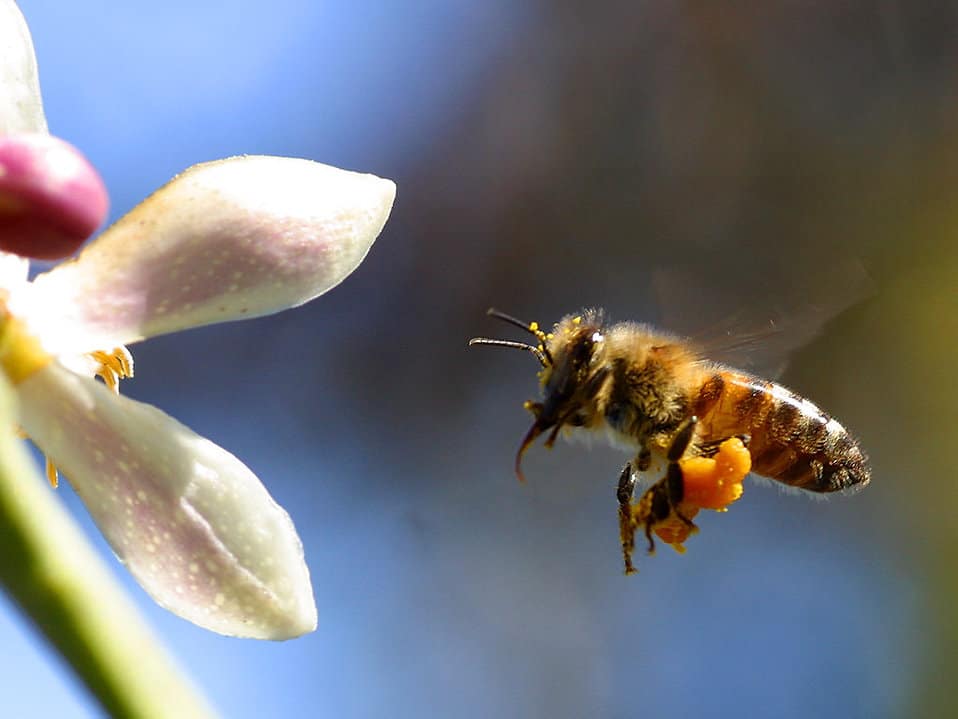
So, many bees do the same in the same cell and other cells and fill them almost to the top, as you see in the picture.
Now this firmly packed pollen undergoes an anaerobic lactic acid fermentation; lost you there? The latter means that fermentation occurs when different yeasts and bacteria produce acid by-products, breaking the pollen grain’s tough outer shell.
This way, the nutrients become available so adult bees can get them. Learn more about Bees and Bacteria.
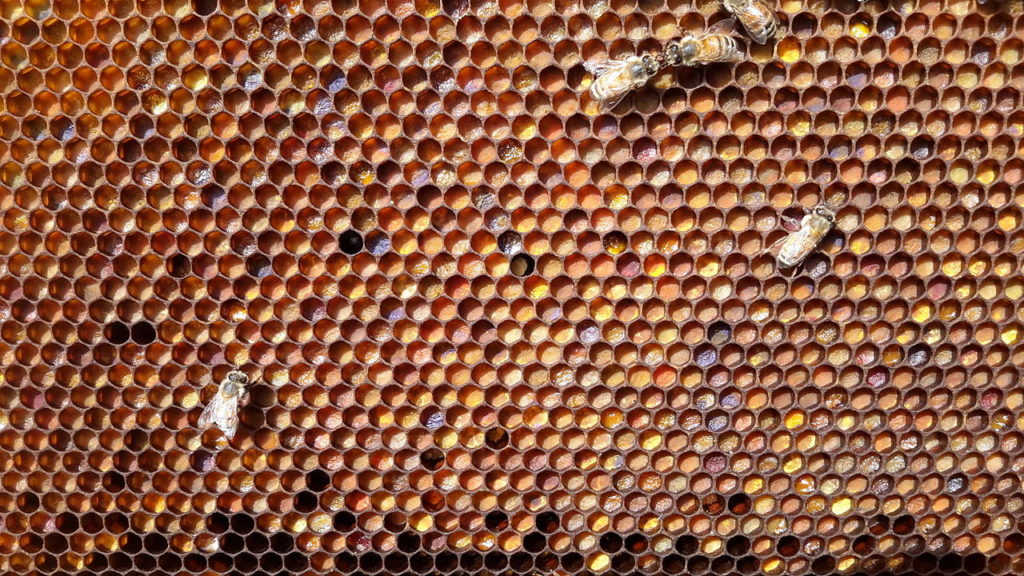
So, that is, in general terms, the relation between bees and pollen. But what about us humans? Is Bee Pollen a good source of nutrients for it to be worth its consumption? Let’s take a look at that.
Bee pollen is regarded as a superfood, and many health claims are without scientific support. Of all that, what is real and what isn’t?
How is bee pollen collected by beekeepers?
First, how do we get to harvest bee pollen for our consumption? Well, we beekeepers install what we call pollen traps or pollen collectors.
These devices’ design allows a bee from the field loaded with pollen in her legs to go through a tiny hole. She has to squeeze through it, and the pollen granules that stick out from her body break loose and get collected in a basket.
This process does not harm the bees; an effective collector is not wanted. That means the pollen yield should be about 80% of what bees bring to the hives; the other 20% gets to go through to the inside so bees can process and consume it.
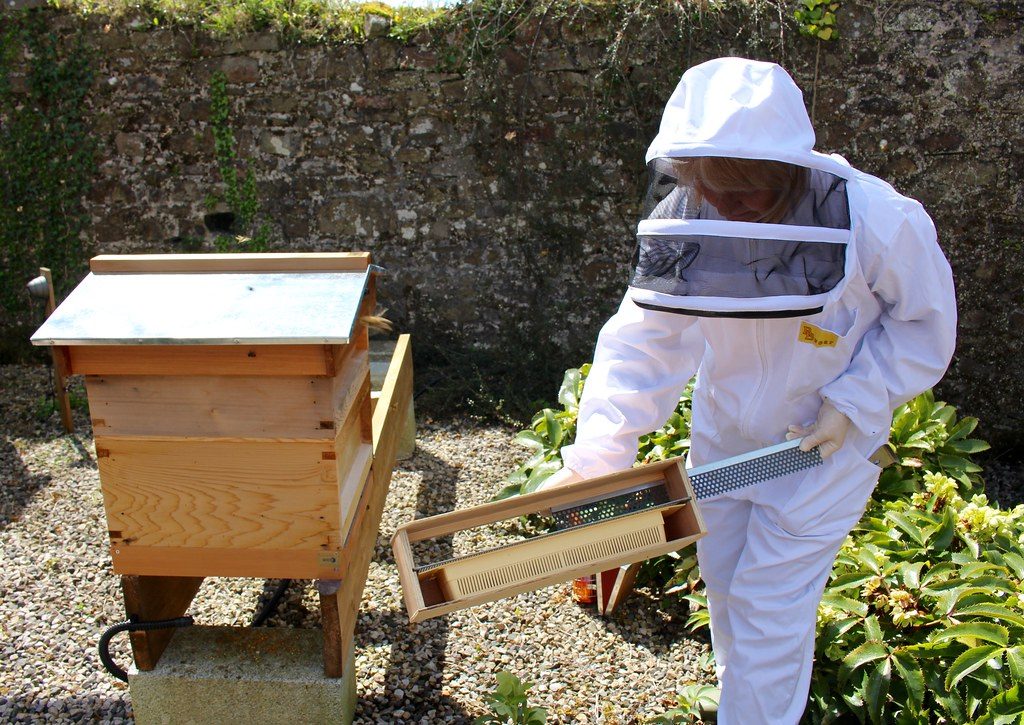
When enough amount is in the collector, we beekeepers harvest the bee pollen. So, as this pollen hasn’t been stored in the hive cells, it is not fermented.
Its water content is high, though, and if left as it is at room temperature, it can get moldy fast. To prevent spoiling and keep its nutritional characteristics, we dehydrate it at low temperatures for 8 hours at 50 degrees Celsius.
Bee pollen granules features
Now it is essential to consider this: The amount of nutrients bee pollen has, is species-dependent. That means that pollen from, let’s say, clover is different, in its nutrient profile, to bee pollen from a gum tree or dandelion, and so on, you get the idea.
Also, the color and taste of Bee Pollen are different depending on its botanical origin. Besides all that, honeybees collect pollen from as many other plants as possible, so that is why most of the time, you will find that the bee pollen has a different color array.
Bee Pollen nutrition facts
Let´s dive into the nutrient composition. As mentioned above, the amount of nutrients depends on where the bees collect the pollen from and the different pollens’ contributions to a single harvest.
But regardless of that, bee pollen is very high in proteins, polyunsaturated fatty acids, omega-3 fatty acids, minerals, and carotenoids.
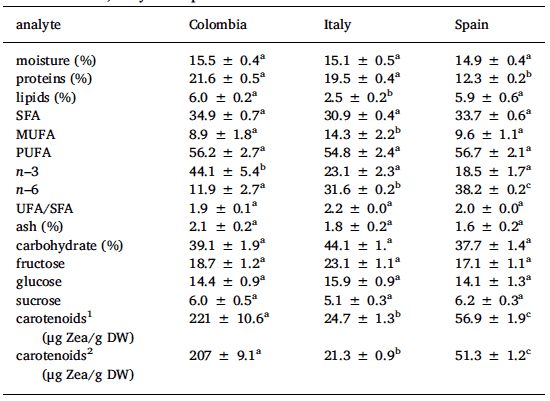
How to consume Bee Pollen
You should eat this product raw, meaning not to cook with it. High temperatures will brown or caramelize the product and most likely will make it bitter.
So, taking bee pollen is relatively straightforward; you can consume it directly or incorporate it into your diet by mixing it with cereal, yogurt, juices, or a topping in various dishes.
From meats, eggs, and chicken, to pancakes, and all sorts of desserts, sprinkle it over, and you will be set.
How much Bee Pollen should you take a day?
There are no standards whatsoever in how much you should eat daily. It all depends on how much you like it and how you incorporate it into your diet.
But being a protein-rich food, you can eat as much as you like throughout your day. Just mix it with your favorite foods.

Honey Vs. Bee Pollen
Honey and Bee Pollen, although bees collect from flowers, are two different products. As seen above, bee pollen is a concentrated source of protein and antioxidants, while honey is a fast energy source as it is high in carbohydrates and has no protein.
So, to have the best of both worlds, you should consume both regularly in your diet.
Did you know you can Eat Honeycomb? Read this post to learn more.
Bee Pollen Benefits for Health
The most frequently asked questions about these products are, Is bee pollen good for weight loss? Is bee pollen good for you? and Does bee pollen help with allergies?
In part two of this series, you can find the answer to the last one. Now, let´s tackle the first two.
It is essential to consider that this product is not medicine; it is a food with crucial nutrients and bio-active compounds that when consumed regularly, helps you to stay healthy but are not intended to cure a disease.
However, it may help to prevent many. For weight loss, it is useful when it is part of a healthy lifestyle, a healthy balanced diet, regular exercise, and low-stress levels. As it is nutritionally dense, it will help in reducing cravings.
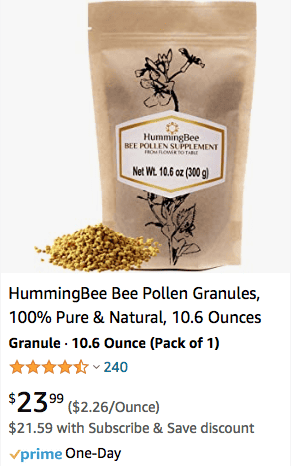
I´ll be going into more nutritional profile detail in part 2 of this Bee Pollen series, as there is much to discuss regarding this fantastic product.
See you in the next chapter; if you want to know how HummingBee Bee Products can help you, click on this link.
Also, check out our HummingBee Bee Pollen product if you are interested.
Finally, we have recently been featured in GoSolo magazine; find the whole article here.
Bee Propolis, five things you need to know about it
What is Bee Propolis? The term propolis comes from two Greek words, pro (for or…
Best Lip Balm to Keep Dry, Chapped Lips Hydrated Year-Round
While there is hardly a consensus among lip balms customers on the best lip balm,…
Chapped lips? Causes and treatments for dry, cracked lips.
What are sore chapped lips a symptom of? Severely chapped lips may have different causes….
Honeycomb, Can you Eat It?
Yeah! Raw honeycomb can be eaten. This post covers everything about how the honeycomb is…
Bee Pollen Benefits
If you look around the internet, you’ll find a significant amount of information about bee…
Royal Jelly: The three essential facts
So far, we´ve talked about Bee Pollen, Propolis, and Honey. These three are the only…
